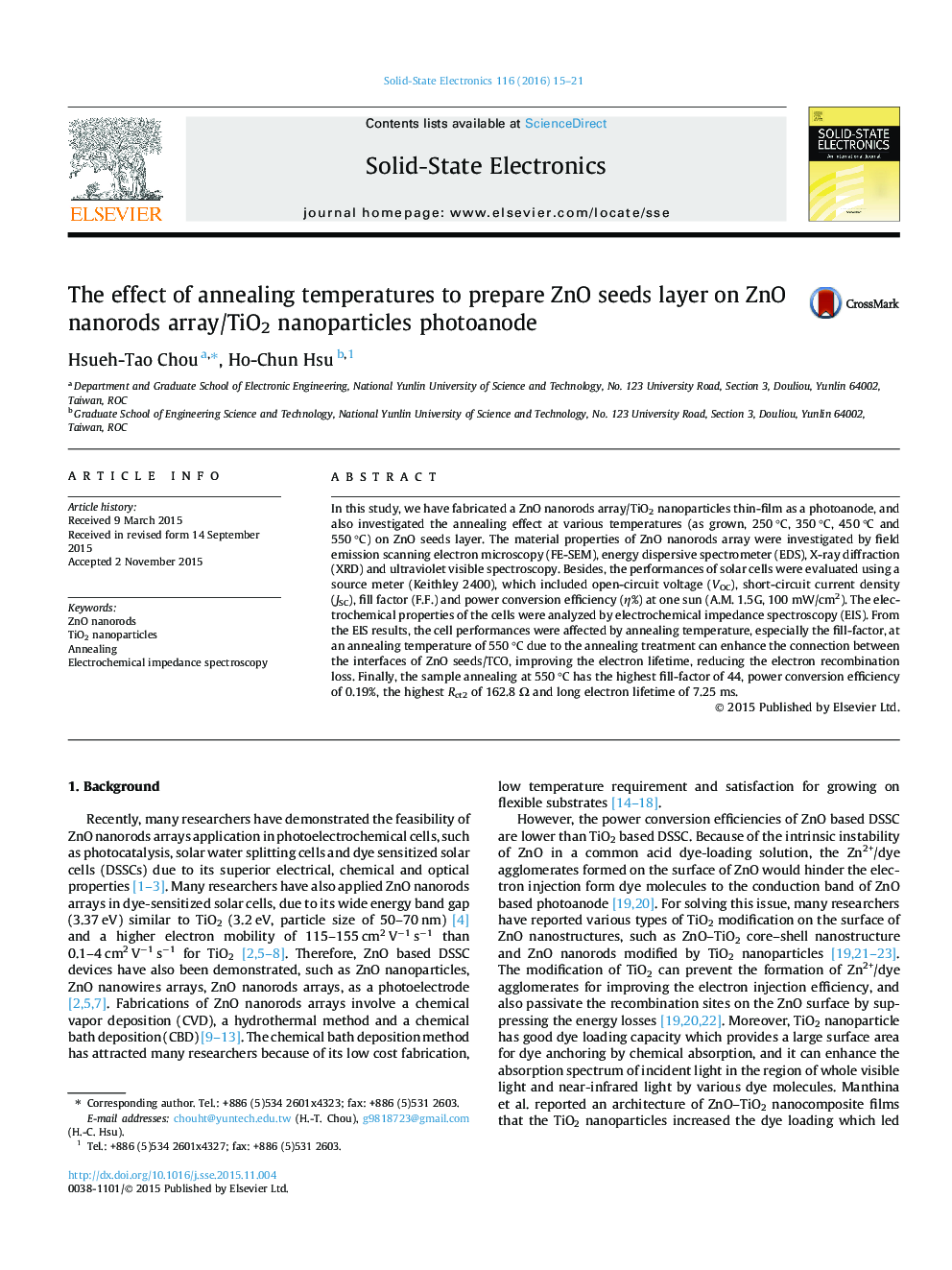| کد مقاله | کد نشریه | سال انتشار | مقاله انگلیسی | نسخه تمام متن |
|---|---|---|---|---|
| 7150870 | 1462217 | 2016 | 7 صفحه PDF | دانلود رایگان |
عنوان انگلیسی مقاله ISI
The effect of annealing temperatures to prepare ZnO seeds layer on ZnO nanorods array/TiO2 nanoparticles photoanode
دانلود مقاله + سفارش ترجمه
دانلود مقاله ISI انگلیسی
رایگان برای ایرانیان
کلمات کلیدی
موضوعات مرتبط
مهندسی و علوم پایه
سایر رشته های مهندسی
مهندسی برق و الکترونیک
پیش نمایش صفحه اول مقاله

چکیده انگلیسی
In this study, we have fabricated a ZnO nanorods array/TiO2 nanoparticles thin-film as a photoanode, and also investigated the annealing effect at various temperatures (as grown, 250 °C, 350 °C, 450 °C and 550 °C) on ZnO seeds layer. The material properties of ZnO nanorods array were investigated by field emission scanning electron microscopy (FE-SEM), energy dispersive spectrometer (EDS), X-ray diffraction (XRD) and ultraviolet visible spectroscopy. Besides, the performances of solar cells were evaluated using a source meter (Keithley 2400), which included open-circuit voltage (VOC), short-circuit current density (JSC), fill factor (F.F.) and power conversion efficiency (η%) at one sun (A.M. 1.5G, 100 mW/cm2). The electrochemical properties of the cells were analyzed by electrochemical impedance spectroscopy (EIS). From the EIS results, the cell performances were affected by annealing temperature, especially the fill-factor, at an annealing temperature of 550 °C due to the annealing treatment can enhance the connection between the interfaces of ZnO seeds/TCO, improving the electron lifetime, reducing the electron recombination loss. Finally, the sample annealing at 550 °C has the highest fill-factor of 44, power conversion efficiency of 0.19%, the highest Rct2 of 162.8 Ω and long electron lifetime of 7.25 ms.
ناشر
Database: Elsevier - ScienceDirect (ساینس دایرکت)
Journal: Solid-State Electronics - Volume 116, February 2016, Pages 15-21
Journal: Solid-State Electronics - Volume 116, February 2016, Pages 15-21
نویسندگان
Hsueh-Tao Chou, Ho-Chun Hsu,